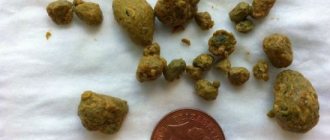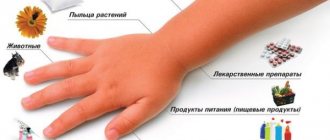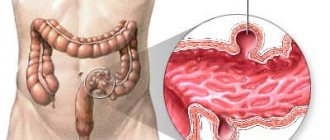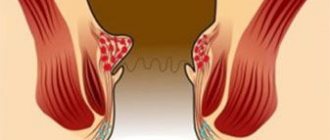Urticaria with gastritis treatment
Good afternoon.
Around 2008, my lips began to swell intermittently in the morning, and sometimes a few blisters appeared on my body. I took lorotadine. After a couple of months it subsided. A year later it started again. I also took lorotadine. In May 2013, suddenly my whole body became covered in blisters, including my head. Lips are swollen. Lorotadine did not have any special effect. It was repeated every morning as soon as I woke up and in the evening at about five o’clock, as if on an alarm clock. After four days, I felt that my voice was hoarse and disappearing, and it became painful to swallow. I went to the hospital, they put me on a drip with prednisone, after which a whistling sound appeared when breathing, and I was admitted to intensive care. She spent 10 days in the hospital.
Every day they gave me IVs and injections with antihistamines and stomach medications. The symptoms disappeared only after 5-6 days. I took biochemistry. Some kind of gastric titer was increased. I swallowed the probe and discovered erosive gastritis. With this they were discharged. I was prescribed lorotadine for 10 days. He didn't help. Already on the second day, hives appeared.
I went to an allergist and was prescribed Parlazine and that’s it. Nick’s stomach was not treated; no chylobacteria were found. In 2014, pregnancy occurred. During pregnancy, under the supervision of doctors, I took a sip of Parlazine. Urticaria persists with stable strength. Parlazin holds it back, there is no swelling either, but it doesn’t go away.
I did an ultrasound of the INTERNAL ORGANS, the liver is normal, the kidneys are normal, the pancreas is normal, the gallbladder has bends and isthmuses. I passed biochemistry - the norm is everywhere. At the moment I feel like this allergy is raging inside, there are no external manifestations, but I feel like my throat is a little swollen, my scalp itches unbearably and I can feel lumps under the skin.
Every evening I panic that I will get sick, that I will suffocate, I can’t sleep, when I lie down I feel like the walls of my throat are touching and it seems that my throat is swelling and I won’t be able to breathe. That is, parlazin restrains visible manifestations, but inside everything is boiling. Sometimes it happens that I eat something and my stomach and intestines are immediately upset, allergic.
There is pain in the esophagus, although when I swallowed the probe they found nothing, only erosive gastritis. There are rashes on the skin in the form of neurodermatitis.
I took all the panels during pregnancy, everything was negative. Including antibiotics, analgin and anesthesia.
Tell. What should I do, who else should I turn to, I’m very tired, I’m already developing neurosis, I’m afraid of dying from swelling of the throat or taking medicine.
I need to have my teeth treated, but no one will undertake it, I’m afraid because they doubt the results, they say that they may be unreliable, that there may be a reaction other than an allergic one. I'm just at a dead end, this is no longer life, but survival from morning to morning.
What examination should I undergo? Is it possible to go to the hospital and have me examined right away? Is it possible to cure hives? How to treat teeth with this diagnosis? How do I know what medications I can take? If I swallow the probe again, can I be anesthetized with lidocaine, is a reaction possible? I have already been to 4 allergists and no one said or prescribed anything except Parlazine. They didn’t treat the stomach either, what if it caused it? They were not referred to a gastroenterologist, but I read that a gastroenterologist is very important in the treatment of Urticaria.
Please give me some advice, I’m very tired of this life.
Urticaria or urticaria is a type of skin dermatitis that occurs under the influence of psychogenic or chemical-physical factors. The latter refers to toxic substances, including those formed as a result of the activity of pathogenic viruses, for example, in hepatitis. Therefore, if a rash similar to a nettle burn appears on your body, consult a dermatologist immediately.
What is urticaria
Urticaria is a broad term that includes a number of diseases that have different causes and similar clinical manifestations in the form of pale pink blisters that resemble a nettle burn. Hives are always accompanied by itchy skin. The reaction can be caused by stress, which is not so dangerous, or toxic substances.
urticaria in adults
In everyday life, it is believed that urticaria (rash, nettle fever) is a mild allergic reaction that appears on the skin, which is a big misconception.
Causes of hives: don't be frivolous
It is believed that every person experienced urticaria in childhood. Some got itchy after the first strawberry, some after swimming in cold water, and some had itching all over their bodies before exams. The rash was not treated - it went away quickly, and they remembered about it only when a new strawberry grew up.
Urticaria in adults never appears out of the blue. And if the rash and itching often recur or do not go away at all, dermatologists talk about chronic urticaria.
The chronic stage occurs for the following reasons::
- Diseases of the gastrointestinal tract
caused by Helicobacter pylori (gastroduodenitis, gastritis B (erosive gastritis), helicobacteriosis). To get rid of hives, it is not enough to deal with the pathogen. Helicobacter pylori does not cause the disease, but maintains it in the presence of a source of allergy. - Viral hepatitis
. When the liver is damaged, the amount of bilirubin in the blood increases. Due to disruption of protein metabolism, a rash appears that itches and itches, especially at night. Antihistamines (antiallergic) drugs do not help with this condition. Additional symptoms of hepatitis: with hepatitis A, the temperature rises; with hepatitis B, the rash is accompanied by joint pain and vomiting. - Herpes (type 3 is accompanied by a rash all over the body, type 6 is expressed in red spots like rubella, types 7 and 8 are supplemented by chronic fatigue syndrome).
- ARVI
(infectious diseases cause a rash all over the body). - Infectious lesions of the nasal and pharyngeal mucosa
(sinusitis, tonsillitis, otitis). - Urogenital infections
(cystitis, vaginitis). - Autoimmune thyroiditis
is an inflammation of the thyroid tissue that causes hormonal disorders. - Systemic collagenosis
is atrophy of connective tissue, causing malfunction of internal organs. - Autoimmune diseases
(systemic lupus, vasculitis, rheumatoid arthritis, psoriasis). - Oncological tumors.
Source: https://limto.ru/krapivnica-pri-gastrite-lechenie/
How to deal with acne caused by gastritis
Local treatment of acne on the back, shoulders and face, which has caused diseases of the digestive system, brings practically no results. Masks, tinctures, lotions prepared using traditional methods, or pharmacy creams and scrubs have a short-term effect. This leads to the erroneous conclusion that there is no connection between gastritis and skin rashes. But as soon as the next period of exacerbation of the disease occurs, acne appears again.
Don't guess what to do in this situation. It is strictly not recommended to start problems with the digestive system. Otherwise, skin manifestations will become the simplest of the bunch of complications that arise.
- The first step on the path to recovery is contacting a gastroenterologist. After conducting appropriate tests and gastroscopy, he will prescribe medication and diet, which depends on the quality of gastric juice and damage to the stomach walls. If pathogenic microorganisms are detected, antibiotics are prescribed.
- During treatment, skin manifestations may intensify. Especially when using antibiotics. After completing the course, it will take some time to restore the microflora, during which the rash will still persist, but the formation of new acne is unlikely.
- To alleviate skin manifestations of internal problems, it is recommended to use antibacterial lotions and drying masks suitable for a specific skin type. Such products will not remove the rash, but will relieve external inflammation and soothe irritated skin.
- You can take additional tinctures and teas to improve the appearance of the epidermis in the described situation only after consulting a doctor.
Post Views: 1,643
Gastritis and urticaria
Acute urticaria and angioedema are some of the most common allergic diseases. Often the cause of these conditions cannot always be determined. Today we will talk about the most common cause of urticaria and Quincke's edema. This is chronic gastritis.
Many patients, oddly enough even some doctors, believe that gastritis occurs in almost every person and it makes no sense to consider it a disease, much less fight it in any way.
In fact, chronic gastritis is a serious pathological condition.
What is gastritis? This is an inflammatory process in the gastric mucosa. Inflammation is edematous, hyperemic, loose gastric mucosa. Sometimes the inflammation is so severe that erosions and even ulcers appear on the mucous membrane.
As is known, the gastric mucosa, in addition to the function of digesting food, plays the role of a barrier between the external environment and the internal environment of the body. So, during inflammation, not only the function of digesting food is disrupted, but also the barrier function of the gastric mucosa.
And through this poorly functioning barrier, various allergens penetrate into the bloodstream, like through a leaky sieve.
The situation is aggravated by impaired digestion of food, the lack of its complete breakdown, as well as dysbiosis of the gastrointestinal tract that accompanies any inflammatory process.
There are also several reasons for the development of gastritis.
This includes poor nutrition, the formation of antibodies to the cells of the gastric mucosa, and the use of certain medications, but in 70% of cases the cause of chronic gastritis is an infection.
A small spiral-shaped bacterium, Helicobacter pylori, which affects the mucous membrane of the stomach and duodenum, produces many toxins that affect the cells of the stomach and causes an inflammatory process.
Chronic gastritis manifests itself as heartburn, bitterness in the mouth, belching, a feeling of fullness in the stomach after eating, bloating, abdominal pain, and stool disturbances. Sometimes the inflammatory process occurs latently, that is, without any symptoms.
To determine whether you have chronic gastritis and to be tested for the presence of Helicobacter pylori, it is enough to undergo fibrogastroduodenoscopy.
What diseases cause urticaria and why?
Pink-red, itchy blisters are a symptom of hives. The peculiarity of a skin rash is its sudden appearance on any part of the body. The boundaries of the lesion can be localized over a large area of the skin.
Why does hives appear?
The acute form, while the provoking cause remains intact, passes into the chronic stage. Treatment should primarily be aimed at the disease, the symptom of which is urticaria.
After recovery, the signs of the rash disappear without a trace, leaving no spots or scars. The body's predisposition to rashes of this kind must be taken into account when prescribing treatment. Diseases accompanied by rash and itching have different etiologies.
Peptic ulcer of the stomach and duodenum
Chronic diseases of the digestive system caused by bacterial infection (Helicobacter pyroli) can manifest as chronic urticaria (CU).
In addition to bacterial infection, the cause of inflammation of the mucous membrane of the stomach and duodenum with the symptom of urticaria can be:
- food allergies;
- drug allergies;
- endocrine;
- neuroregulatory.
The main method of treatment depends on the cause:
- elimination of the allergen;
- restoration of hormonal balance (for endocrine disorders);
- stabilization of central nervous system activity.
Compliance with a diet is a necessary condition for normalizing the secretory activity of the stomach. Medicinal plants that promote alkalization of gastric juice:
- St. John's wort;
- centaury;
- fennel;
- marshmallow root;
- liquorice root;
- flax-seed.
Use in the form of decoctions and infusions for 2-4 weeks.
Chronic gastritis
Pathogenic factors of hCG have the same signs as those of peptic ulcer and duodenum. In case of bacterial infection, antibiotics, diet and natural medicines are also prescribed.
Chronic enterocolitis
Absorption disorders in the large and small intestines due to worms, bacterial infection, and antibiotic use lead to the concentration of breakdown products in the tissues, including the epithelium, causing inflammation.
What is dysentery, watch in this video:
Parasitic infestations
Nausea, loss of energy, pain in the intestines and rashes with scabies are symptoms of infection with roundworms, cat fluke, and pinworms.
The cause of an allergic reaction is the toxic secretions of parasites.
A blood test shows an increased content of eosinophils (leukocytes), as the body’s reaction to a foreign protein. Testing for worm eggs completes the diagnostic picture. Treatment is aimed at destroying parasites.
Reaction to antibiotics
Manifestations of dysbacteriosis due to the destruction of intestinal microflora by bactericidal drugs are overcome with the help of colibacterin and bifidum. Herbal medicine helps restore all intestinal functions.
The following herbal remedies are used:
- alder cones;
- snake knotweed;
- Oak bark;
- strawberries;
- blueberry berries and leaves.
Infusions and decoctions are used for a long time, at least a month.
Shigella infection
Diet, biological products for microflora, herbal mixtures with cinquefoil roots, shepherd's purse herbs, plantain - methods of complex treatment of dysentery.
Chronic pancreatitis
Inflammation of the pancreas is a disease, one of the causes of which is diabetes mellitus. The basis of treatment for uncomplicated forms is a protein diet and herbal medicine.
The cause of urticaria in diabetes is a reaction to drugs used to treat diabetes.
The use of herbal remedies for CP is necessary to prevent gallstone disease. To normalize the flow of bile, use:
- celandine;
- anise fruit;
- corn silk;
- dandelion root.
Medicinal infusions containing sedatives, antispasmodics, tannins contribute to the remission of chronic pancreatitis.
Autoimmune diseases
Diseases of the thyroid gland provoke the development of chronic autoimmune urticaria. Unlike other types, it occurs in a more severe form and does not respond to antihistamines.
HC can also be caused by rheumatoid arthritis, lupus erythematosus, and celiac disease.
Rheumatoid arthritis
Morning stiffness and the appearance of papules (dense subcutaneous nodules) are symptoms of rheumatoid arthritis. The disease is considered incurable. Treatment is aimed at weakening the inflammatory process, relieving painful manifestations, and preventing complications.
lupus erythematosus
Fever and the appearance of a specific rash on the face can be a manifestation of lupus erythematosus. The skin disease tends to affect internal organs and is then called systemic lupus erythematosus.
Therapy for lupus erythematosus consists of prescribing steroids, B vitamins, and antifever medications.
Congenital protein intolerance causes chronic inflammation of the small intestine. Main features:
- intolerance to dairy products;
- chronic diarrhea;
- stomach ache;
- anemia;
- thirst.
A nonspecific sign of celiac disease that may appear is atopic dermatitis (redness and dryness of the skin). This is an allergic reaction of a weakened immune system to any external irritant.
Dermatitis can be caused by dust, wool, or food.
A lifelong diet and medications that replace animal protein are combined with treatment of associated manifestations. An immunologist or allergist monitors the patient to prevent exacerbation of atopic dermatitis.
Urticaria without diagnosis
In half of the cases, it has still not been possible to determine the cause of the skin rash. Existing tests and methods do not provide an accurate answer about the mechanism of action on epithelial cells.
- bright pink blisters;
- persistent itching;
- proliferation and merging of rashes;
- spread throughout the body;
- secondary infection of scratches;
- insomnia;
- duration up to six months.
IC is classified into three subtypes:
In the first case, the mechanisms of self-regulation of the immune system are involved when the body's cells come into conflict with antigens. Pseudo-allergic IR implies an inadequate skin reaction to cold, ultraviolet radiation, infrared radiation, and liquids.
This video will tell you what rheumatoid arthritis is:
Contact idiopathic urticaria can occur from prolonged exposure of the skin to allergenic substances contained in tissues, skin, and artificial materials.
The main treatment for CIC is the elimination of any possible contact with allergens, starting with food ones.
Steroid medications and hormonal ointments are prescribed to relieve symptoms. External and internal use of a decoction of the string has a calming effect on inflammatory manifestations.
This symptom should not be ignored. The transition from the acute form to the chronic stage will require long-term treatment and is fraught with complications in the form of eczema or dermatitis.
As a preventative measure, it is recommended to follow a hypoallergenic diet and promptly consult a dermatologist and allergist.
Gastritis and skin problems
17 September 2020, 23:38 0 14,905
Skin is the main indicator of the health of internal organs and the body as a whole. First of all, disruption of the gastrointestinal tract is reflected on the skin. Gastritis is an inflammation of the stomach that occurs for various reasons and manifests itself in a variety of forms. Gastritis is always accompanied by problematic manifestations on the skin.
Expressed in red pimples on the body, face, acne, rash. Problems with the digestive tract that do not cause obvious symptoms occur in a latent, chronic form for a long time. A side effect that occurs due to dysfunction of the stomach impairs the absorption of fats, the absorption of proteins and minerals, and the absorption of vitamins.
The skin becomes pale and pimples appear.
Causes
Allergic gastritis is the most pronounced and quickly manifests itself. It occurs due to the entry of an allergen into the stomach. Immediately absorbed into the walls of the stomach and penetrating into the blood, the allergen causes manifestations on the skin. Dizziness, nausea, and pain in the lower abdomen appear.
Urticaria on the skin of the abdomen is especially characteristic of such gastritis. Inflammation of the stomach, whether it has just arisen or is already in an advanced form, can lead to external manifestations in any form. Incomplete digestion of food as a result of the presence of toxins usually leads to acne on the chin.
Urticaria is a skin rash characterized by itching. Pimples appear ranging in size from a few millimeters to a centimeter. They have a one-time or chronic nature, and are possible in combination with Quincke's edema.
More common in children than in adults.
As a rule, urticaria appears on the stomach due to allergic gastritis, which occurs if food or chemicals that contain an allergen for a particular organism enter the stomach.
Medicines that cause hives:
- streptomycin;
- group of sulfonamides;
- penicillins;
- non-steroidal anti-inflammatory drugs.
The drug can provoke urticaria for 14 days.
It should be remembered that taking medications causes side effects even a few days after stopping their use. Penicillin can cause hives for up to 14 days after taking it. Food allergenic products:
Red fish, honey, chocolate, citrus fruits can cause the release of histamine. A reaction similar to an allergic one is provoked. These products are pseudo-allergenic and do not trigger the allergic process. This form of urticaria occurs in combination with a disease of the gastrointestinal tract.
Rashes and pimples on the skin due to gastritis
Blisters that arise as a result of disruption of the stomach do not respond to local treatment. Only short-term improvement can be achieved. The symptom is dealt with, but the root cause remains untouched. The main symptom of gastritis is a rash on the abdomen (urticaria). Secondary symptoms are acne on the face, back, shoulders, dry mouth, nausea.
How to fight?
A positive long-term result is shown only by fighting the cause of external manifestations of improper functioning of the body. If you have rashes or pimples that are refractory to topical treatment, the first step is to have a medical examination of your digestive system.
When a diagnosis of gastritis is made, a diet is prescribed. Spicy, sweet and fatty foods are excluded from consumption. A diet of vegetables containing vitamin A, zinc and omega acids is recommended; you need to limit your consumption of coffee, stop smoking and drinking alcohol.
Sometimes treatment with medications is necessary for chronic and acute forms of gastritis. The medicine is prescribed by the doctor.
A visit to a dermatologist should not be ignored; local treatment, along with eliminating the main cause, will speed up the process of skin healing. Regular examination will help to avoid recurrence of the disease and transformation into a chronic form. A healthy, balanced diet and adequate intake of vitamins prevent the occurrence of diseases.
How does gastritis affect the skin? Acne, Diets and nutrition, Cosmetology
- admin
- 27.08.2015
- 41993
Source: https://allvarik.ru/polezno-znat/gastrit-i-krapivnica.html
The effect of Helicobacter on the skin

It has already been proven that Helicobacter manifests itself as an allergic reaction in the form of acne on various areas of the skin: on the face, neck, shoulders, elbows, back and chest. These rashes are periodic and may appear and disappear. They also look different. This includes redness, as with hives, and blisters, and a scattering of small pimples, which is why it is difficult to visually diagnose the disease. The rash is sometimes itchy, and the intensity of itching varies from mild to unbearable. If you scratch the inflamed areas, there is a high probability of infection and the occurrence of purulent pimples.
Studies have shown that 84% of people suffering from rosacea (otherwise known as rosacea) have a Helicobacter infection. This disease is diagnosed mainly in women over forty years of age. The rashes are localized on the face: on the forehead, nose, cheeks, chin. According to reviews, treating the cause of gastritis leads to the disappearance of acne.
Why do acne appear when infected with Helicobacter? There are three main reasons:
- The bacterium (not only Helicobacter) disrupts the protective properties of the gastric mucosa. This causes the penetration of substances into the blood that in a healthy body do not enter it. The skin is an organ that partially removes toxins. With an increase in the amount of nonspecific substances excreted through the epidermis, it reacts with pimples and acne.
- The long-term presence of the bacteria under discussion in the digestive tract triggers a complex mechanism of immune-inflammatory processes, manifested by allergic skin rashes.
- An untested hypothesis is being developed that in response to the presence of Helicobacter, the body produces a specific immunoglobulin, the side effect of which is atopic dermatitis and other inflammatory reactions on the skin.
- Digestive problems provoke a decrease in immunity. Against this background, other chronic diseases become more active and new ones “stick”, initiating the appearance of acne.
The connection between the Helicobacter bacterium, which causes diseases collectively called gastritis, and skin rashes is scientifically substantiated. Elimination of the cause usually leads to the disappearance of dermatological manifestations.
What causes urticaria with worms, pancreatitis, gastritis, peptic ulcer
What diseases can cause urticaria?
Pink-red, itchy blisters are a symptom of hives. The peculiarity of a skin rash is its sudden appearance on any part of the body. The boundaries of the lesion can be localized over a large area of the skin.
Celiac disease
Congenital protein intolerance causes chronic inflammation of the small intestine. Main features:
- intolerance to dairy products;
- chronic diarrhea;
- stomach ache;
- anemia;
- thirst.
A nonspecific sign of celiac disease that may appear is atopic dermatitis (redness and dryness of the skin). This is an allergic reaction of a weakened immune system to any external irritant.
Dermatitis can be caused by dust, wool, or food.
A lifelong diet and medications that replace animal protein are combined with treatment of associated manifestations. An immunologist or allergist monitors the patient to prevent exacerbation of atopic dermatitis.










